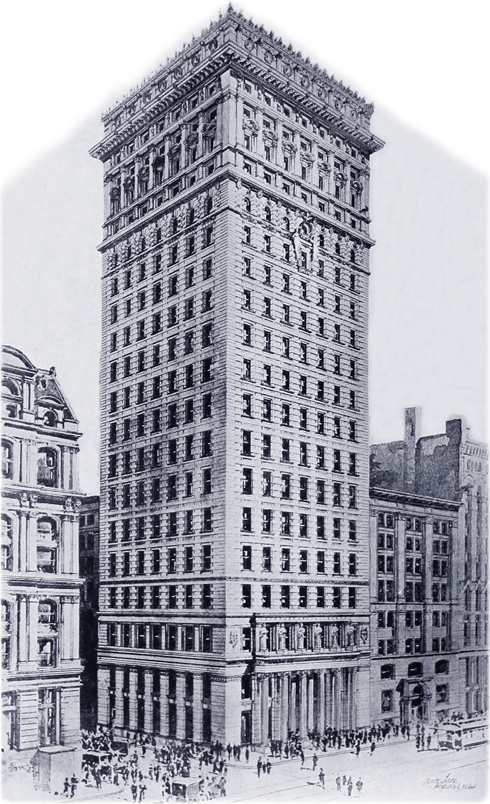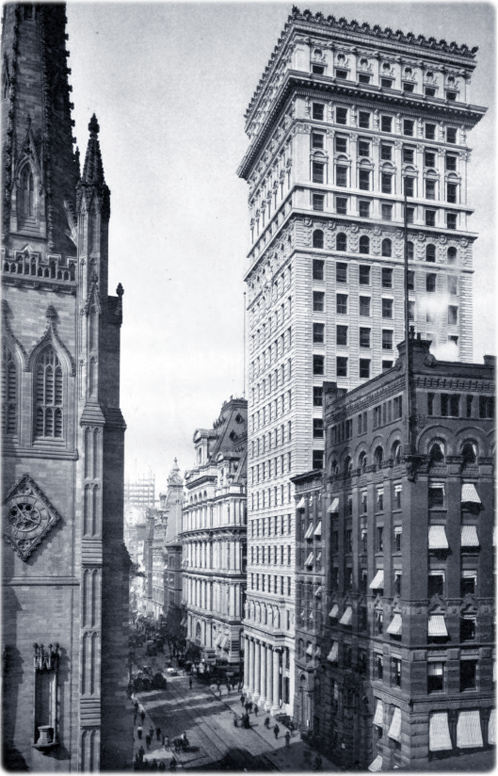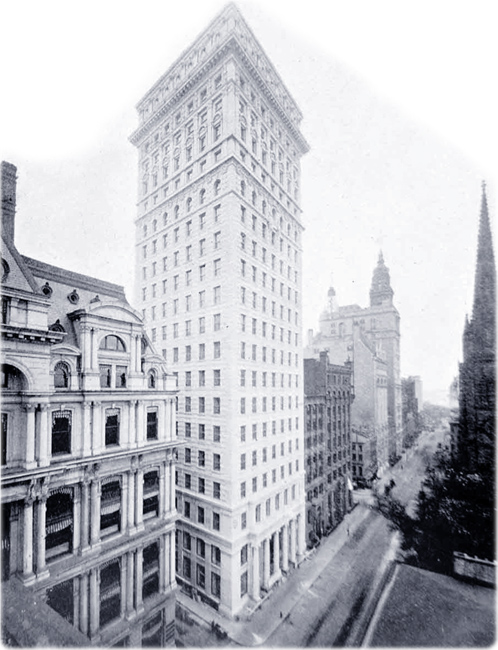
American Surety Building, illustration published in Both Sides of Broadway from Bowling Green to Central Park, 1910.
American Surety Building - 100 Broadway
The American Surety Building was erected between 1894 and 1896 at 100 Broadway, on the southeast corner of Pine Street, in the Financial District of Lower Manhattan. The neoclassical building was originally designed by Bruce Price. It was one of the first buildings in New York with steel framing and curtain wall construction.
The skyscraper for the American Surety Company (organized in 1881) was completed in 1896 as a 21-story office building (312 feet high), then the second tallest building in New York City, after the Manhattan Life Building. The classical sculptural figures at the third story was designed by J. Massey Rhind. Between 1920 and 1922, the building was enlarged, including the site of the Schermerhorn Building (96 Broadway), and two floors were added, reaching 388 feet (118 m) in height.
In 1973, Thomson Realty Company acquired the building and the interiors were redesign for the Bank of Tokyo and its name was placed at the neoclassical entrance to the building. In 1997, it was designated a city landmark by the New York City Landmarks Preservation Commission.

American Surety Building, illustration published in Both Sides of Broadway from Bowling Green to Central Park, 1910.



The American Surety Building under construction about 1895, seen from the Trinity Church yard. The Old Equitable Building is on the left (photo from A History of Real Estate, Building and Architecture in New York City during the last quarter of a century, 1898).

The 21-story American Surety Building about 1896, looking south on Broadway.
On the right, the American Surety Building on Broadway, looking north, from Trinity Church (photo from American Architect and Building News, August 15, 1896).
|
Copyright © Geographic Guide - Skyscrapers City of New York. |
American Surety Building - 100 Broadway